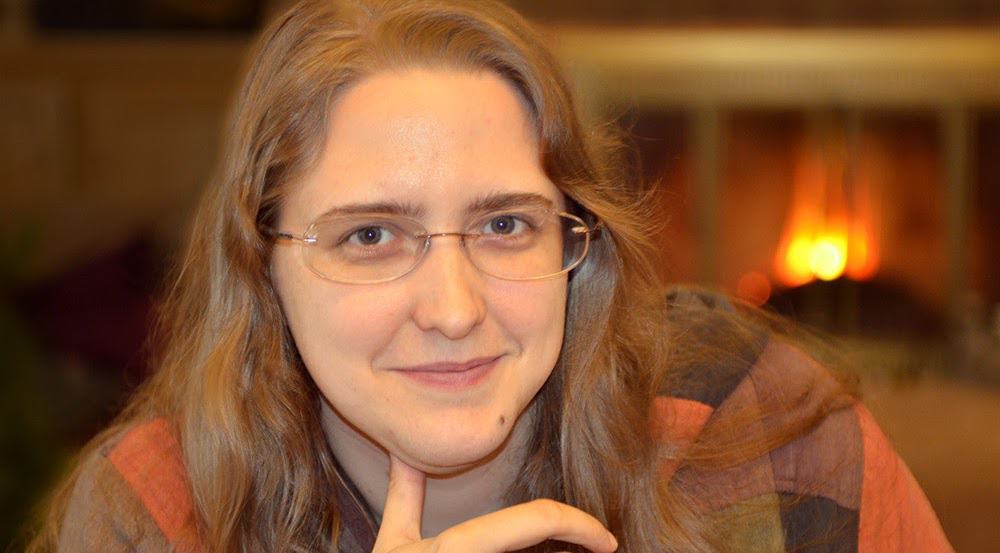Ada Palmer on Learning From the Past and the Future

Ada Palmer is a history professor at the University of Chicago. Students in her Italian Renaissance course are given roles and resources as they reenact the Papal election of 1492. “Some are cardinals, some crowned heads, some are vote counting clerks–but there isn’t a preset outcome, all elect a pope,
“Different than a reenactment, we talk about what happened and why it happened, inevitably the outcome of the election and whether there was a war in Spain or Italy could be instigated by information a clerk passed on to a carindal and it changed face of the board showing students how tiny actions shaped outcome.
The historical simulation “inspires students to get to know each other and the material quickly, suddenly students engage, quiet students start talking more to each other.”
Niall Ferguson said that historians study crises as pivot points. Palmer said, “Historians study a range of things–today historians study hats, silverware, domesticity of animals–to learn about another way the world has worked. I study what people believe about themselves when in crisis.”
While the Renaissance was a golden age in that it filled museums with artifacts, Palmer’s study of the period revealed that it was a terrible age to live in, one with widespread poverty and disease and decreasing life spans compared to the MIddle Ages.
“I loved watching the SpaceX launch but I didn’t tear up the way I normally do for launches because there were protestors right outside my window,” said Palmer. Commenting on the gilded age for the 1% and widespread inequity, she added, “It’s the first time the present felt like the Renaissance.”
Our inherited view of the Renaissance as a gilded age is “residue from the old fashion ways we write history as a big man story,” said Palmer.
“The problem with teleological narratives is that they make us ignore the fact that a huge portion of real change is made by people who didn’t intend that change to happen,” explained Palmer
“In contrast to great man history,” said Palmer, “It’s plural agency–small opinions have a large impact. It’s the cumulative impact of many, over and over.
She added a present day corollary, “There isn’t some cabal of tech geniuses that know the future.”
Why SciFI?
Palmer has always been a fan of science fiction. She wanted to write Sci Fi since she was a kid. History came second, but “there is no better preparation than history,” said Palmer.
“If you want aliens, go into the past,” said Palmer. “To learn where the future might go we can look at the past. No alien could be more different than us than a person from 1340.”
Her award winning and challenging Terra Ignota series is set in 2454 but written in the style of an 18th century philosophical novel with many explanatory digressions and philosophical tangents.
Her award winning and challenging Terra Ignota series is set in borderless year of 2454 but written in the style of an 18th century philosophical novel with many explanatory digressions and philosophical tangents.
“Science Fiction fights our ethical battles before we have to fight them,” said Palmer.
Think about cloning: before the question about the legality of Dolly cloned sheep, it has be explored for decades in literature.
Take civil rights for robots, the fight has already begun before the entity exists. “Exploration lets us try out scenarios before we have to deal with them,” said Palmer.
Ursula Leguin said, “Science fiction is not predictive; it is descriptive.” Palmer agrees, “When technology shifts, you have dozens of books and movies that have explore the topic. They are not prediction but a picture of where things could go, a look at possible worlds.”
If not a fan, it may be too late. “Sci Fi is easy and fun for kids but it’s hard to start reading Sci Fi and fantasy as adult.
On High School
“We should talk to students about their path to the future” said Palmer. “Students pick colleges based on pamphlets, then in college, they get overwhelmed, they pick a major, realize they’ve taken the wrong courses because no one had the conversation with them and laid out the steps.”
She tells the story of a physicist who went on a decade-long diversion into the oil business that one one conversation in high school could have prevented. “I want to see high school conversations change.” She’d like to see more room for passion projects and strong decision support for postsecondary plans.
Dr. Palmer (@Ada_Palmer) made a commitment to post #SomethingBeautiful on Twitter each day.
For extended dialogues with Dr Palmer, check out two long episodes of the Singularity podcast.
Key Takeaways:
[:48] As a historian at Chicago, what does Ada believe that history can teach us about a world that’s currently going through a pandemic as well as the current BLM movement?
[6:05] Donald Ferguson has said that historians study crisis. Does Ada think about studying history in this way?
[8:21] Ada shares her thoughts on what the Golden Age really means and why it is so incredibly important to study.
[12:19] Ada talks about her passion for space exploration, space launches, and the space program and what it all means to her.
[13:19] How true social change actually happens (using examples through history).
[24:15] About Getting Smart’s resource on equity work.
[24:51] Ada shares about her role as a teacher and how she thinks about learning. In particular, she highlights her teachings about the Italian renaissance and why she has her college students reenact the fateful Conclave of 1492.
[32:50] Why Ada writes science fiction, particularly ‘big ideas’ science fiction.
[35:05] How science fiction can help us create new ethical frameworks and dynamic frameworks for changing the world.
[38:10] Ada’s take on the rise of synthetic content such as deep fakes.
[40:32] What an ideal high school curriculum looks like to Ada.
[48:51] Tom thanks Ada for joining the podcast!
Mentioned in This Episode:
Ada Palmer’s Blog
GettingSmart.com/EquityWork
1492 Conclave
Ada Palmer’s Books
Who Owns the News?: A History of Copyright, by Will Slauter
For more, see:
- A Resource for COVID-Weary Parents: New eBook on Doing PBL at Home
- 3 Ways Leaders Can Create The Conditions for Deeper Learning
- Choosing the Right Tools for Amplifying Learning Through PBL
Stay in-the-know with innovations in learning by signing up for the weekly Smart Update.







0 Comments
Leave a Comment
Your email address will not be published. All fields are required.